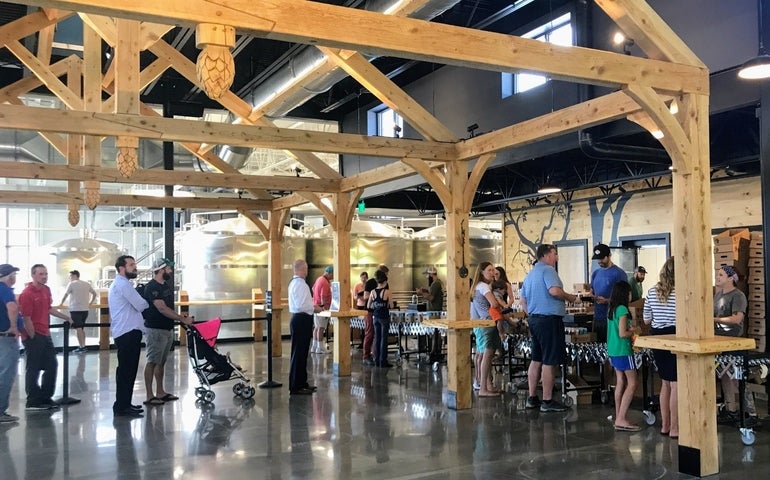The majority owners of Charlton-based Tree House Brewing have responded to a November lawsuit filed by an individual with a minority stake in the company, claiming the passive investor has been well compensated for his initial $10,000 investment and denying allegations of wrongdoing made in his lawsuit.
The answer to the original complaint was filed in Hampden County Superior Court on Dec. 21 by Wilmer Cutler Pickering Hale and Dorr LLP, a Boston-founded law firm headquartered in Washington D.C. representing Tree House and its majority owners, Nathan Lanier and Damien Goudreau.
The response claims Eric Granger, the minority shareholder who is suing them, has received over $850,000 in distributions from Tree House after making a $10,000 investment for 2% of the company in 2012.
Lanier and Goudreau’s legal representation say even after tax payments, this would leave Granger with more than $250,000 in income, which would be at least a 2,400% return on investment.
The November lawsuit filed by Granger made a number of claims against Lanier and Goudreau, arguing the two took a number of steps to block him from financially benefiting from his 2% ownership stake in the company as it achieved national success.
The response pushes back against other claims made by Granger, saying he was never entitled to any control of the company and Lanier and Goudreau made multiple attempts to buy out his shares for a price higher than fair market value.
They denied Granger’s claims the company forged a Criminal Offender Record Information form related to state-mandated background check, saying the company did not mislead government officials about the documents and only updated the form to reflect the fact it was in regards to a different location than the CORI form originally signed by Granger.
The response says Granger refused to sign the document because the company was not giving him access to information he was not entitled to, and the Massachusetts Alcoholic Beverage Control Commission closed an investigation into Granger’s complaint about the CORI form without a decision that found wrongdoing, although Granger’s lawsuit claims that the agency sent a warning letter to Tree House after investigators were made aware of the edits.
An ABCC document obtained by WBJ via a public records request regarding Granger’s complaint showed investigators determined the only alteration made to the CORI documents was the municipality listed as the place of business.
The document showed that ABCC investigators told Tree House from this point forward, any application submitted will require a brand new, completed CORI Release Form, while also admitting the agency had accepted such edited documents in the past.
Among their other responses to Granger’s lawsuit, Lanier and Goudreau took issue with Granger’s claim the duo used holding companies to clandestinely purchase real estate before leasing it back to Tree House, with Lanier and Goudreau saying shareholders were informed of these moves and Lanier and Goudreau took substantial personal risk not taken by other shareholders in order to facilitate Tree House’s expansion.
In regards to claims that Lanier and Goudreau were using company assets to furnish a lavish lifestyle, the response claims two Tesla Model 3s that were purchased by the company are used by employees to travel between the company’s locations for work-related purposes, and purchases of a 2016 Range Rover Sport, a 2021 Mercedes GLC300, and a 2020 Audi Q8 were necessary to accommodate executives’ frequent business travel.
The response denies any wrongdoing by Tree House or Lanier and Goudreau and requests a trial by jury.

